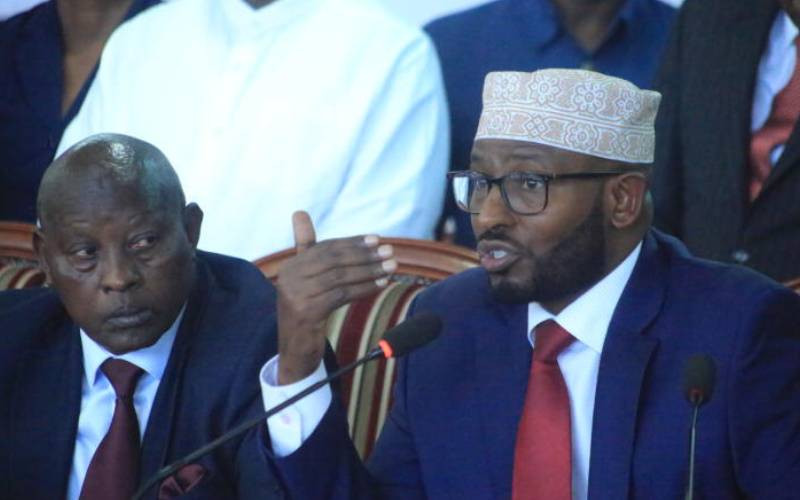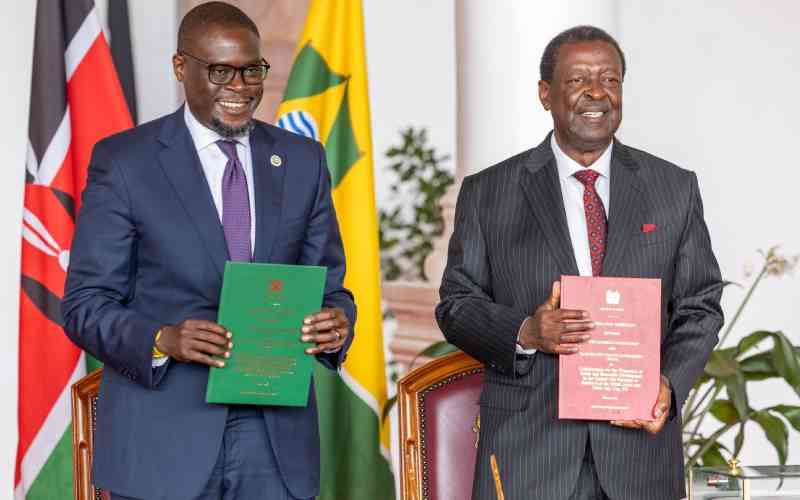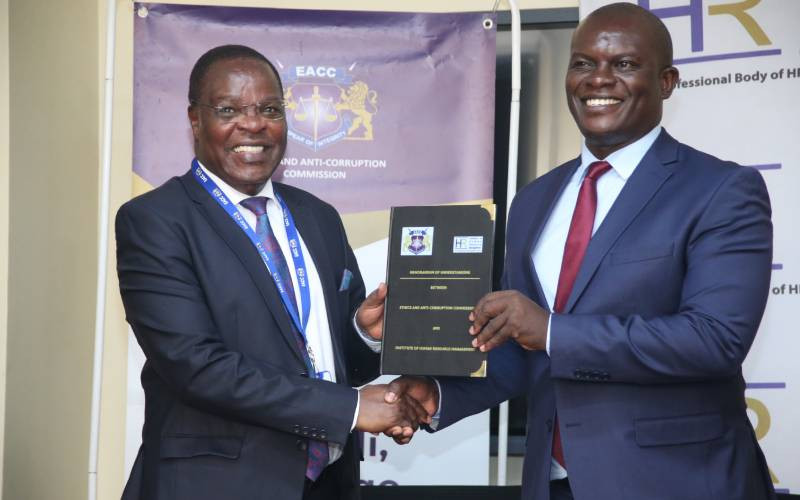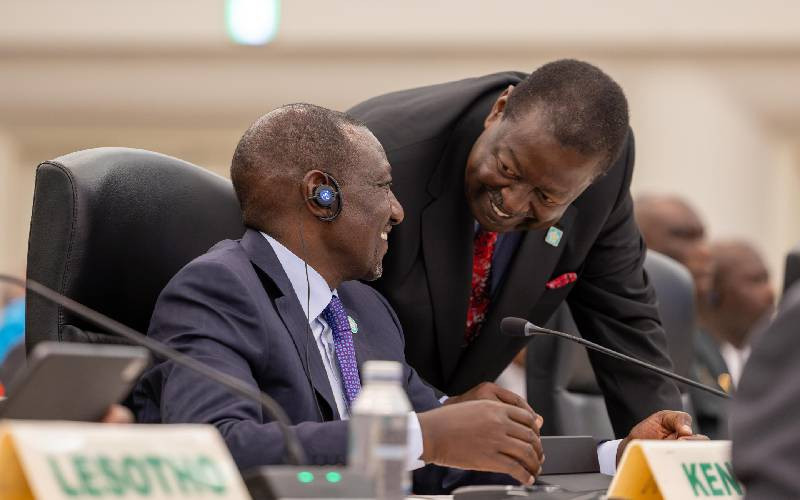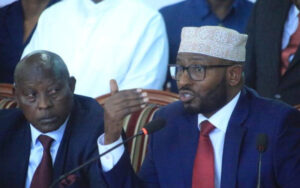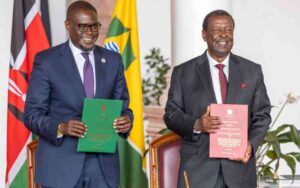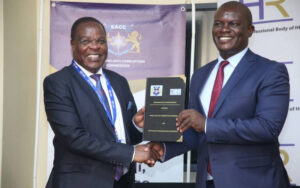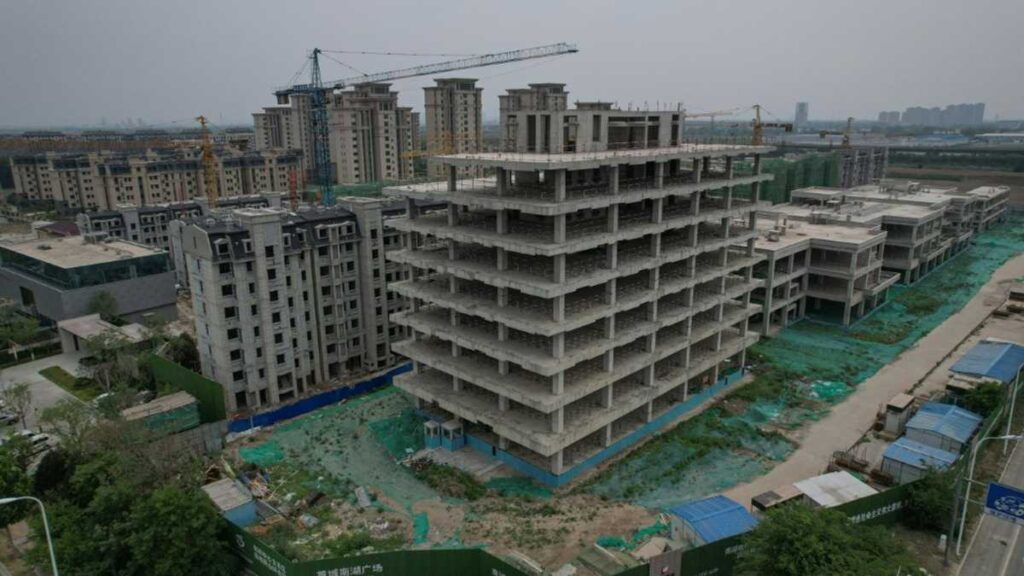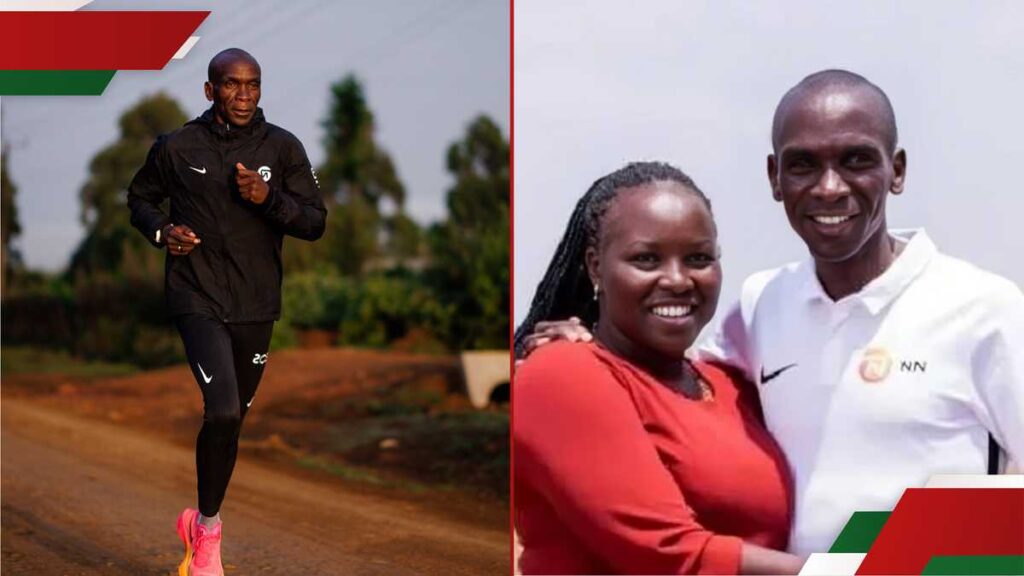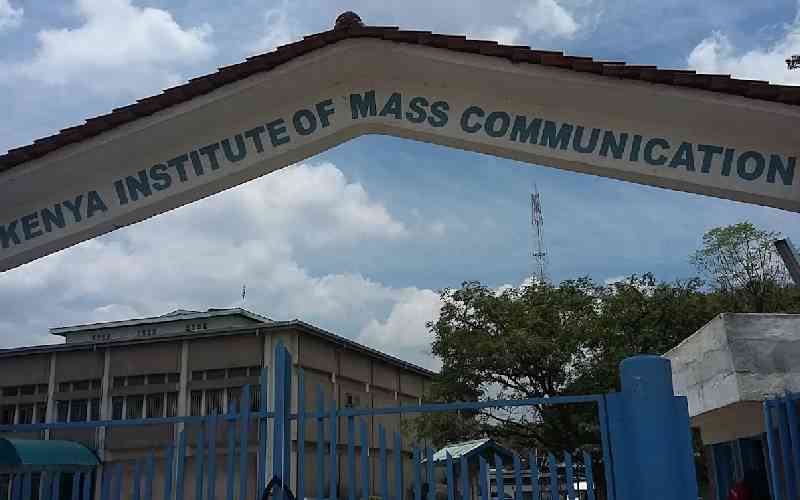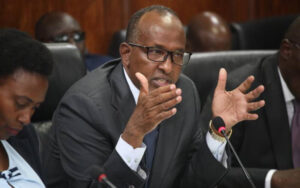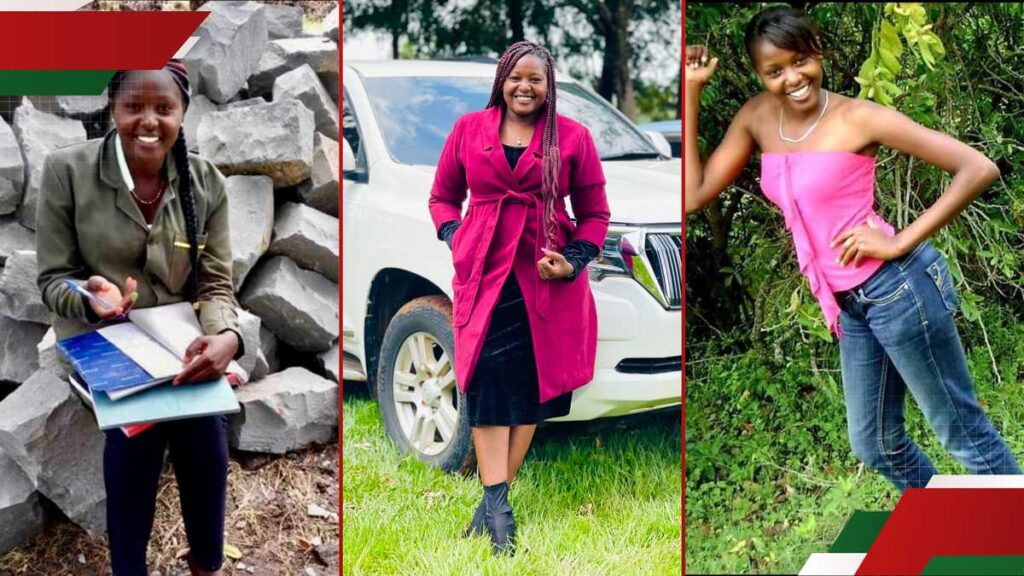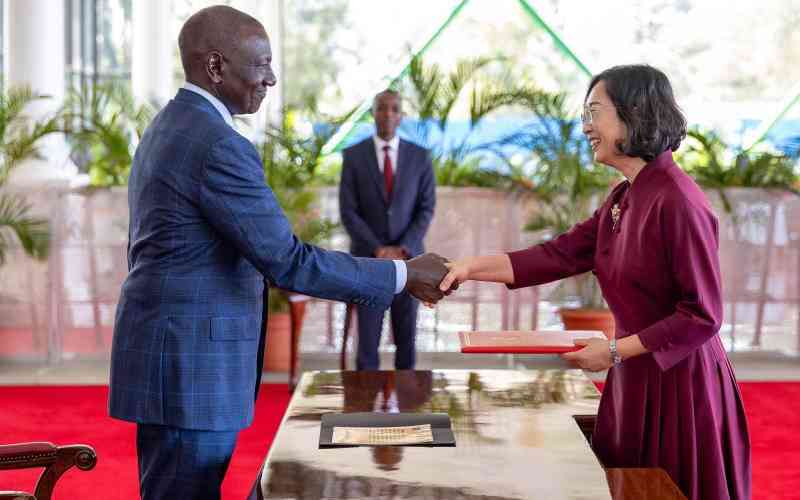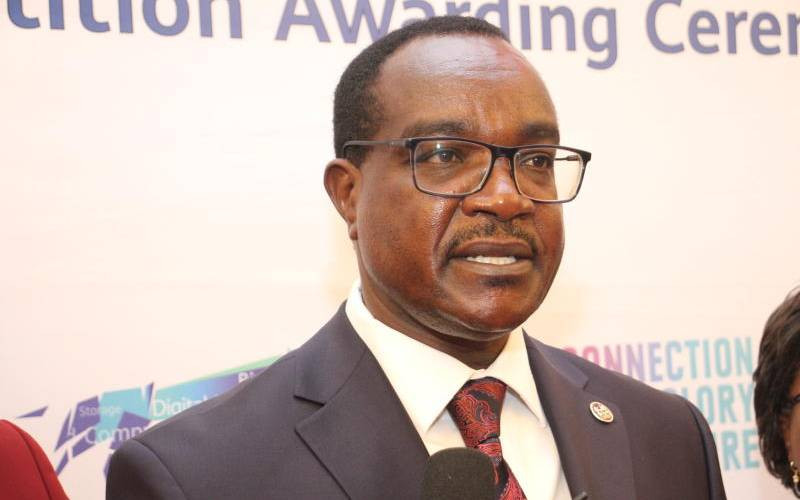The Ninth Tokyo International Conference on African Development (TICAD 9) concluded on Friday with the adoption of a joint communiqué emphasizing the significance of multilateral trade in combating global protectionist trends.
Thirty-five leaders from across Africa, along with their host, endorsed the Yokohama Declaration, which outlines plans to strengthen connections between Africa and the Indo-Pacific region.
This declaration incorporates a new economic initiative introduced by Japanese Prime Minister Shigeru Ishiba on Wednesday.
The communiqué also highlighted proposals aimed at addressing the challenges faced by African nations, aiming to distinguish these efforts from those of China, which has been increasing its influence in Africa.
The three-day conference began on Wednesday and focused on discussing strategies to support African countries.
The event was co-hosted by the Japanese government and various global organizations, including the United Nations.
“We will work to expand investments for Africa’s future, enhance industrial cooperation, and develop human resources,” Ishiba stated during a joint press conference as co-chair of the conference.
Meanwhile, Leaders across Africa have been encouraged to invest in their people to foster sustainable growth, innovation, and resilience, as highlighted by the theme of the comference: “Co-create Innovative Solutions with Africa.”
There was a clear understanding among all attending leaders that growth must translate into real impacts on people’s lives, shifting focus from macroeconomic statistics to grassroots transformation.
President Ruto initiated discussions during a plenary session on the societal pillar, challenging his colleagues to promote resilient, adaptive, and inclusive societies as the foundation for Africa’s transformation.
“The Society Pillar challenges us to invest deliberately in people, including their health, education, and overall well-being. Only then can Africa unlock its vast potential through holistic human capital development,” he stated.
Ruto emphasized that Africa is rich in natural resources and has a youthful population of nearly 400 million, filled with energy, creativity, and innovation.
“Yet, systemic social challenges persist. To bridge this gap, we must champion programs aligned with global, regional, and national priorities, but tailored to build inclusive and resilient societies that leave no one behind,” he added.
Stay informed. Subscribe to our newsletter
The conference, which brought together 35 leaders from across the continent, resulted in the signing of 64 cooperation documents among more than 300 agreements.
Notable attendees included President Ruto, former President John Dramani Mahama of Ghana, Prime Minister Robert Beugré MAMBE of Côte d’Ivoire, Mr. Fujii Hisayuki, Japan’s State Minister for Foreign Affairs, and Mr. Yuichiro Koga, Japan’s State Minister of Economy.
The event was focused on trade and industry and involved numerous Japanese and African companies.
In his address, Ruto pointed out that despite facing relentless and overlapping global crises, Africa’s economies rank among the fastest-growing in the world.
By 2025, Sub-Saharan Africa’s GDP is projected to grow by 4%, outpacing the global average of 3%.
“However, these impressive figures have not sufficiently translated into meaningful poverty reduction, substantial job creation, or enhanced fiscal space for domestic resource mobilization,” Ruto remarked.
He acknowledged that over the years, TICAD has remained true to its founding principles of African ownership, inclusivity, openness, and genuine partnership.
“We commend the Government of Japan and the co-organizers for maintaining this unique framework,” he said.
President Ruto emphasized that Kenya greatly values Japan’s ongoing support in critical sectors such as education, health, agriculture, energy, infrastructure, and security.
These partnerships have been central to Africa’s socio-economic progress.
He reiterated that Africa has abundant natural resources and a youthful population rich in energy, creativity, and innovation.
“Yet, systemic social challenges remain. To tackle this, efforts must be aligned with global, regional, and national priorities, specifically tailored to build inclusive and resilient societies that leave no one behind.”
He cited his Bottom-Up Economic Transformation Agenda as an example, stating that it is focused on creating a fair and inclusive society where every citizen has a stake in national success.
“By expanding opportunities, enhancing access to services, and empowering communities at the grassroots level, we are bridging divides and ensuring prosperity is shared equitably,” Ruto noted.
He identified Africa’s urgent challenge as accelerating the pace of inclusive wealth creation to eliminate poverty, create jobs, and restore dignity.
Ruto argued that this initiative requires correcting the imbalances in global trade, where Africa primarily exports raw materials and imports finished goods at a premium— a system that limits opportunities for the African people and hinders industrialization.
He called on Japan to help Africa rectify this imbalance by investing in local manufacturing and industrialization, supporting agricultural value chains, and financing renewable energy systems to power industry.
“Africa has abundant resources: land, minerals, renewable energy, and a young, tech-savvy workforce. By adding value to what we produce—whether it is coffee, tea, minerals, textiles, or services—we can build industries, create local wealth, and empower our people,” he asserted.
Meanwhile, Japan has pledged to work on nurturing experts in artificial intelligence to assist African countries in achieving economic growth and addressing social challenges.
According to Japanese Prime Minister Shigeru Ishiba, “The development of human resources in new fields such as digital-related industries…”
The Japanese government aims to train 30,000 AI experts through the Japan Africa Co-Creation for Industry initiative. This framework, established by the Japanese Ministry of Industry, is designed to improve collaboration between Japanese companies and African startups.
Additionally, Japan will partner with local universities and the U.N. Development Program to assist trained AI experts in starting their own businesses or securing employment.


